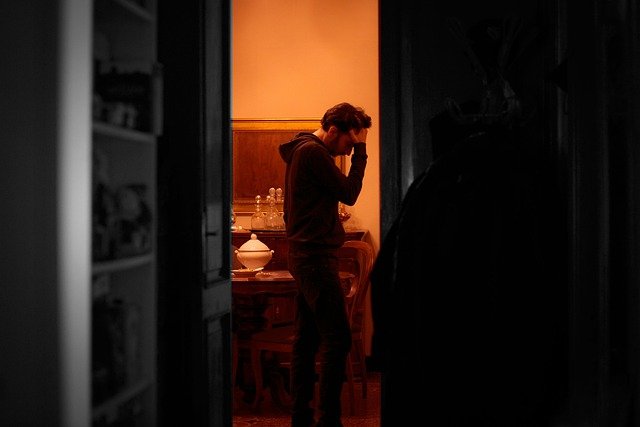
Most of us are self-conscious about at least one aspect of our lives, particularly when we’re going to be the center of attention or meet new people.
It’s also typical to feel nervous, shy, or intimidated in situations where you may be judged, such as an interview, meeting your partner’s relatives, or beginning a new career.
Many people with social anxiety disorder feel overwhelmed or frightened in social situations.
They may worry for days or weeks before an event, and feel intense self-consciousness during the event. This can interfere with their ability to enjoy life and engage with others.
Social anxiety disorder is a persistent fear of situations in which you may be judged or scrutinized by others.
You may feel anxious about activities such as eating or drinking in front of others, using public restrooms, speaking in a meeting, or dating. You may also avoid social situations altogether.
The symptoms of social anxiety disorder can be extremely disruptive. They may cause you to miss work, school, or important life events. In severe cases, a social anxiety disorder can make it hard to even leave your house.
Social anxiety disorder affects 15 million American adults or about 6.8% of the U.S. population. It usually begins in childhood or adolescence, but can start in adulthood.
Women are more likely than men to experience a social anxiety disorder.
Shyness is a common human experience. It’s normal to feel shy or uncomfortable in certain social situations, particularly if you’re meeting new people or feel out of place.
Social anxiety disorder is more than just shyness. It’s an intense, persistent fear of social situations that can interfere with your ability to live a normal life.
People with a social anxiety disorder may avoid social situations altogether, or they may endure them with great discomfort.
The cause of social anxiety disorder is not fully understood. It may be caused by a combination of genetic and environmental factors.
You may be more likely to develop social anxiety disorder if you have a family history of the disorder, or if you’ve experienced a traumatic event.
No. Social anxiety disorder is highly treatable.
With treatment, most people with social anxiety disorder can function well in their daily lives.
Treatment for social anxiety disorder may include exposure therapy, cognitive-behavioral therapy, and medication.
Exposure therapy
Exposure therapy is a type of behavioral therapy that helps you confront your fears head-on. In exposure therapy, you gradually expose yourself to the situations or objects that trigger your anxiety.
The goal is to help you learn how to manage your anxiety in a healthy way and eventually overcome it.
Cognitive-behavioral therapy
Cognitive-behavioral therapy (CBT) is a type of psychotherapy that helps you identify and change negative thinking and behavior patterns. CBT can be an effective treatment for social anxiety disorder.
Medication
Certain medications, such as antidepressants, can help reduce the symptoms of social anxiety disorder. Medication should always be used in conjunction with therapy.
There are a number of things that can worsen social anxiety, including:
- A history of trauma or abuse
- Certain medical conditions, such as thyroid problems
- Family history of anxiety or other mental health disorders
- Use of drugs or alcohol
- High levels of stress
There are a number of things you can do to manage your anxiety and engage with more people without fear:
Talk to a therapist
A therapist can help you understand your anxiety and work with you to develop a treatment plan.
Practice exposure
Exposure therapy involves gradually exposing yourself to the situations you’re afraid of. This can help you learn to manage your anxiety.
Challenge your thoughts
Many people with social anxiety disorder have negative thoughts about themselves and others. Challenging these thoughts can help reduce your anxiety.
Stay positive
It’s important to focus on your accomplishments and the positive aspects of yourself. This can help boost your self-confidence.
- Read also: The Ways To Building Strong And Long-Lasting Connections
- Read also: Common Life Events Can Lead to Emotional Crises
Take care of yourself
Make sure to get enough sleep and exercise, and eat a healthy diet. These things can help reduce your anxiety.
Seek support
Talk to your friends and family about your anxiety. They may be able to provide support and understanding.
Join a club, attend meetups, or take a class to meet new people. These activities can help reduce your anxiety.
Talk to others
Many people with social anxiety disorder feel alone or embarrassed about their condition. It can be helpful to talk to others who understand what you’re going through.
There is no one-size-fits-all approach to overcoming social anxiety, but by trying different strategies, you can find what works best for you.
With time and patience, you can learn to manage your anxiety and enjoy life to the fullest.
Conclusion
Social anxiety disorder is a real and serious condition that can make it difficult to engage with others. However, it is highly treatable, and with the right treatment, most people can overcome their social anxiety.
There are many things you can do to manage your anxiety and improve your quality of life.
Try different strategies until you find what works best for you, and don’t be afraid to ask for help from friends and family. With time and patience, you can overcome your social anxiety disorder.



